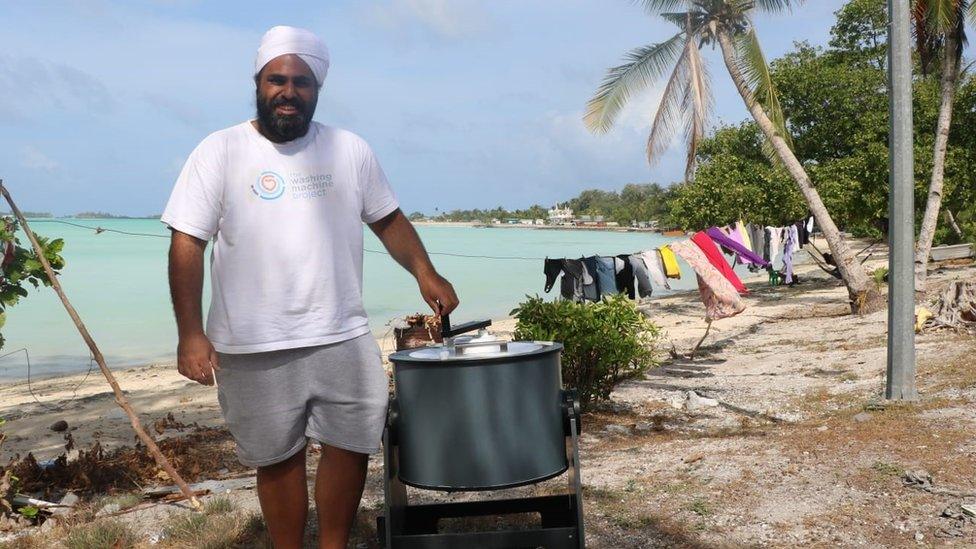Manual washing machines to be given to thousands abroad
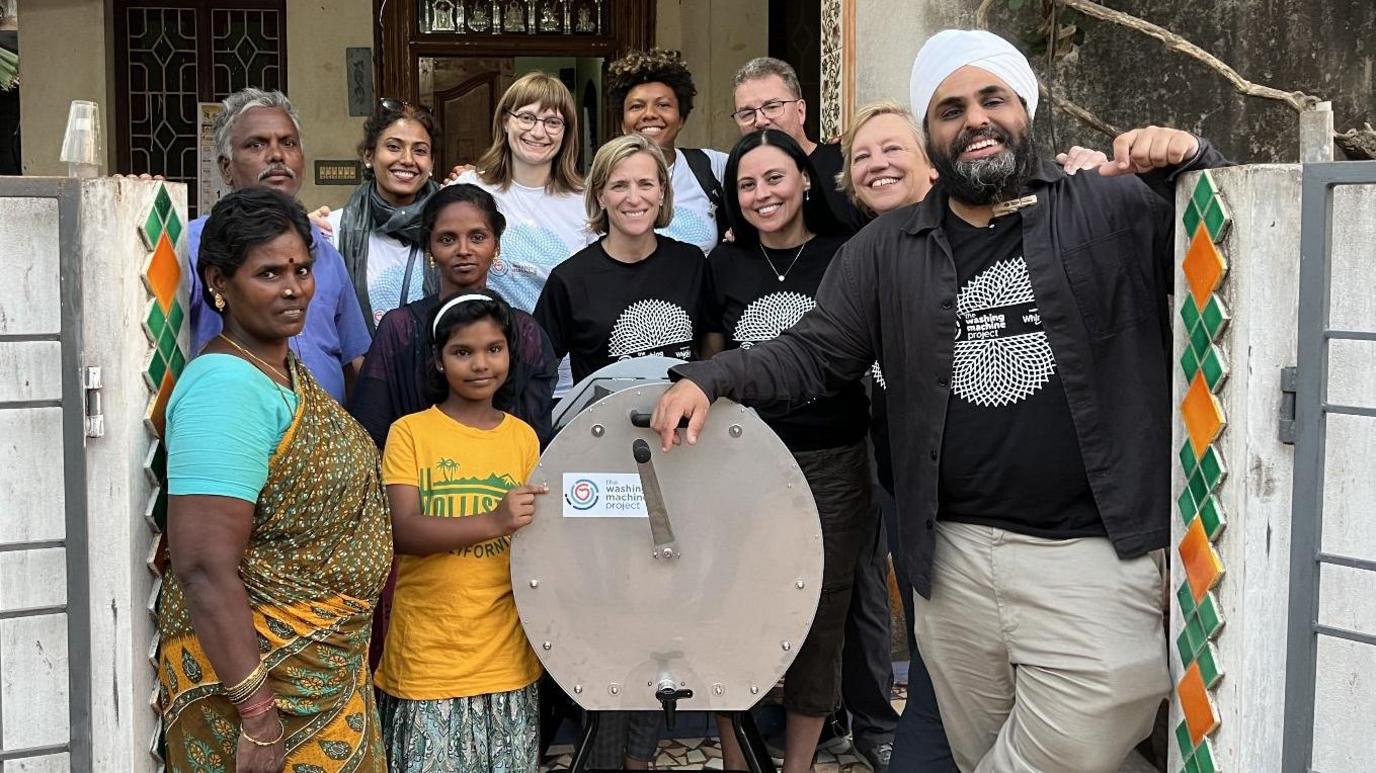
Navjot Sawhney (right) devised the machine after living in India and seeing a neighbour struggling to do her washing
- Published
Ten thousand people in low-income and displaced communities abroad will be given manually operated washing machines, designed by a former student at the University of Bath.
The aim is to help reduce the length of time people spend on the previously labour-intensive chore and to help them conserve their precious water.
The Washing Machine Project, in collaboration with the Whirlpool Foundation, external, is setting out to help 150,000 people.
The partnership will see the machines installed in India, Mexico, Brazil, the Republic of Congo, Kenya, and Uganda.
The project's founder, Navjot Sawhney, completed a masters at Bath in humanitarianism, conflict and development in 2020, and said the team was "set to revolutionise laundry practices globally".
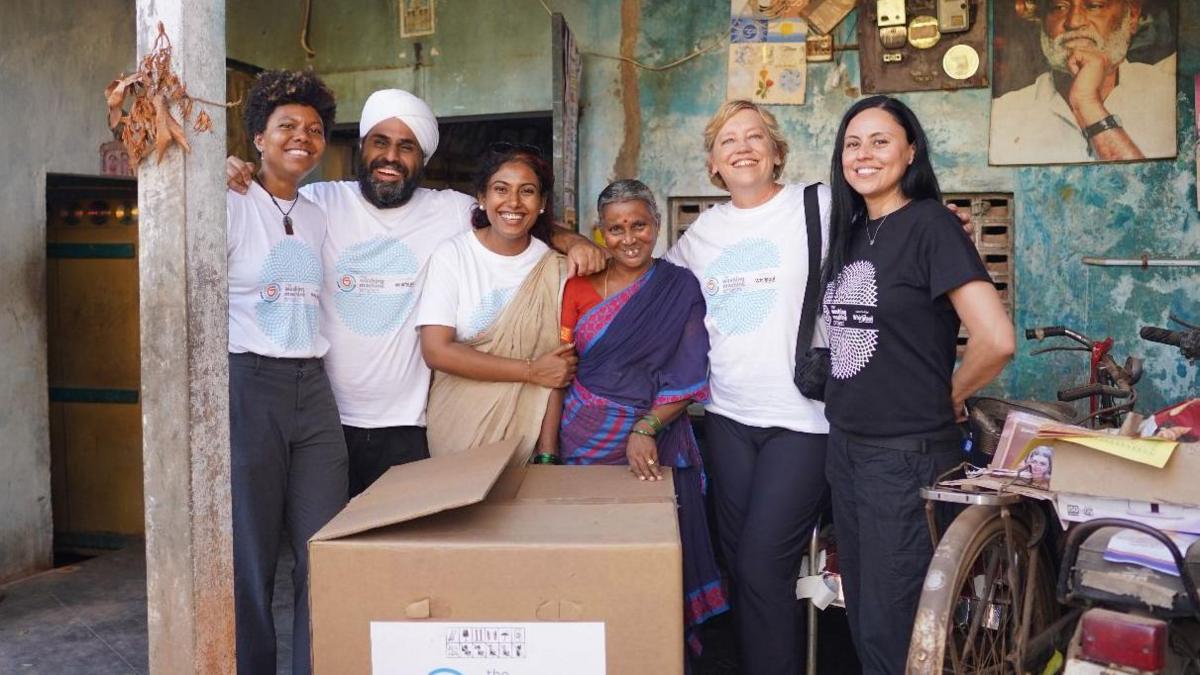
The project will see washing machines donated to people in India, Mexico, Brazil, the Republic of Congo, Kenya, and Uganda
An estimated 60% of the global population - around five billion people - rely on washing their clothes by hand.
In its first five years it is hoped The Washing Machine Project and the Whirlpool Foundation collaboration will free up 17 million hours of work for women and girls, as well as reducing water usage.
The innovation at the heart of project, the Divya washing machine, external, was invented by Mr Sawhney following a work trip to India.
While there, he was struck by how much time his neighbour Divya spent on extremely labour-intensive chores such as handwashing clothes.
In response, he promised he would return with a machine to make her life easier, and was able to do just that last month.
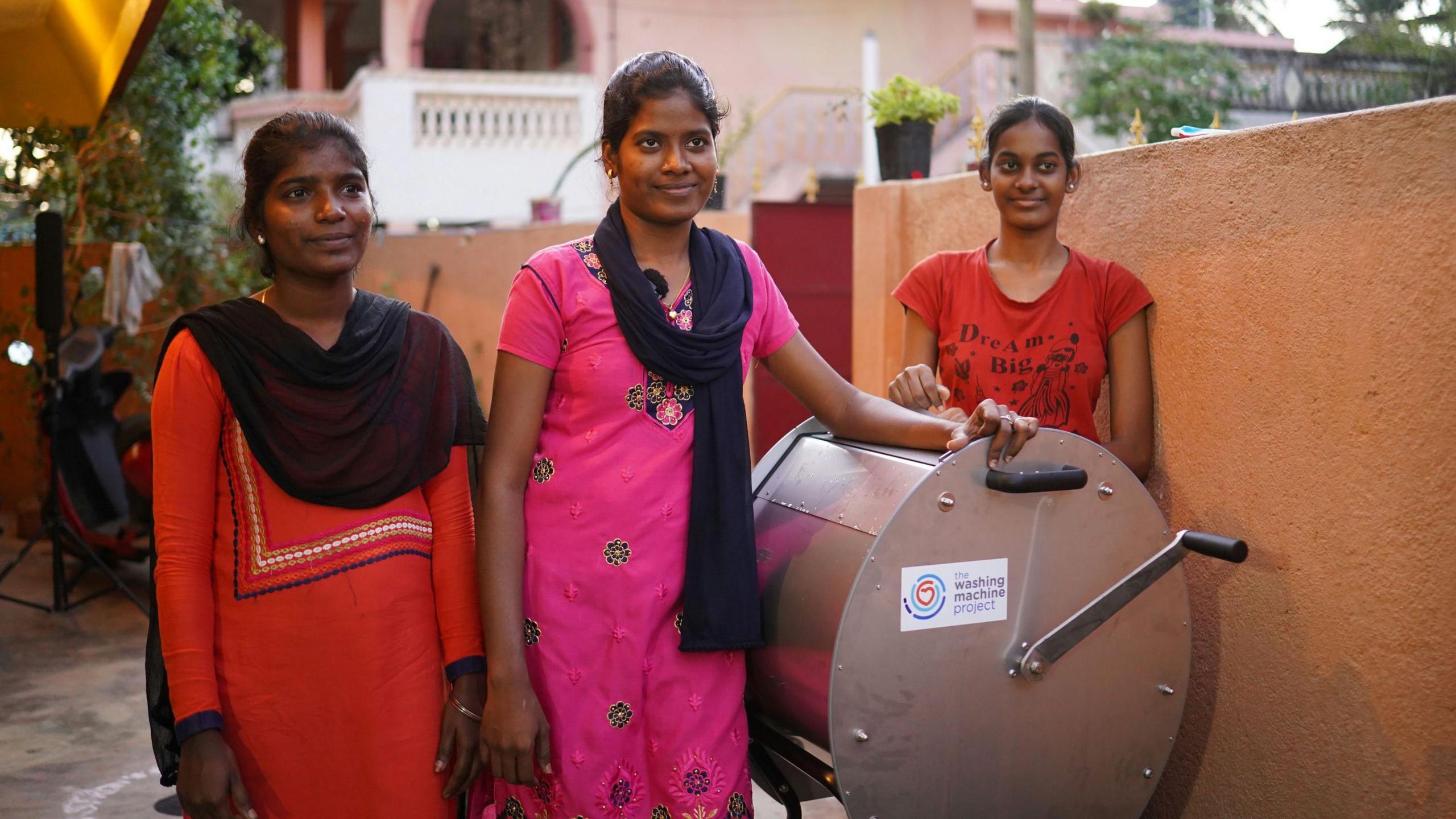
The machines are operated by hand, meaning they don't require electricity to work
Mr Sawhney said: “This collaboration is a testament to what can be achieved when compassion meets technology. Together we are set to revolutionise laundry practices globally, paving the way for a more equitable and prosperous future for hundreds of thousands of people.”
The manual machine is powered by hand, meaning it does not require electricity to run. Estimates suggest it uses about a quarter of the amount of water usually needed for hand washing.
“We greatly admire the mission and work of The Washing Machine Project and see an opportunity to help impact more lives collectively than either of us could individually," said Pam Klyn, Whirlpool Corporation executive vice president, corporate relations and sustainability.
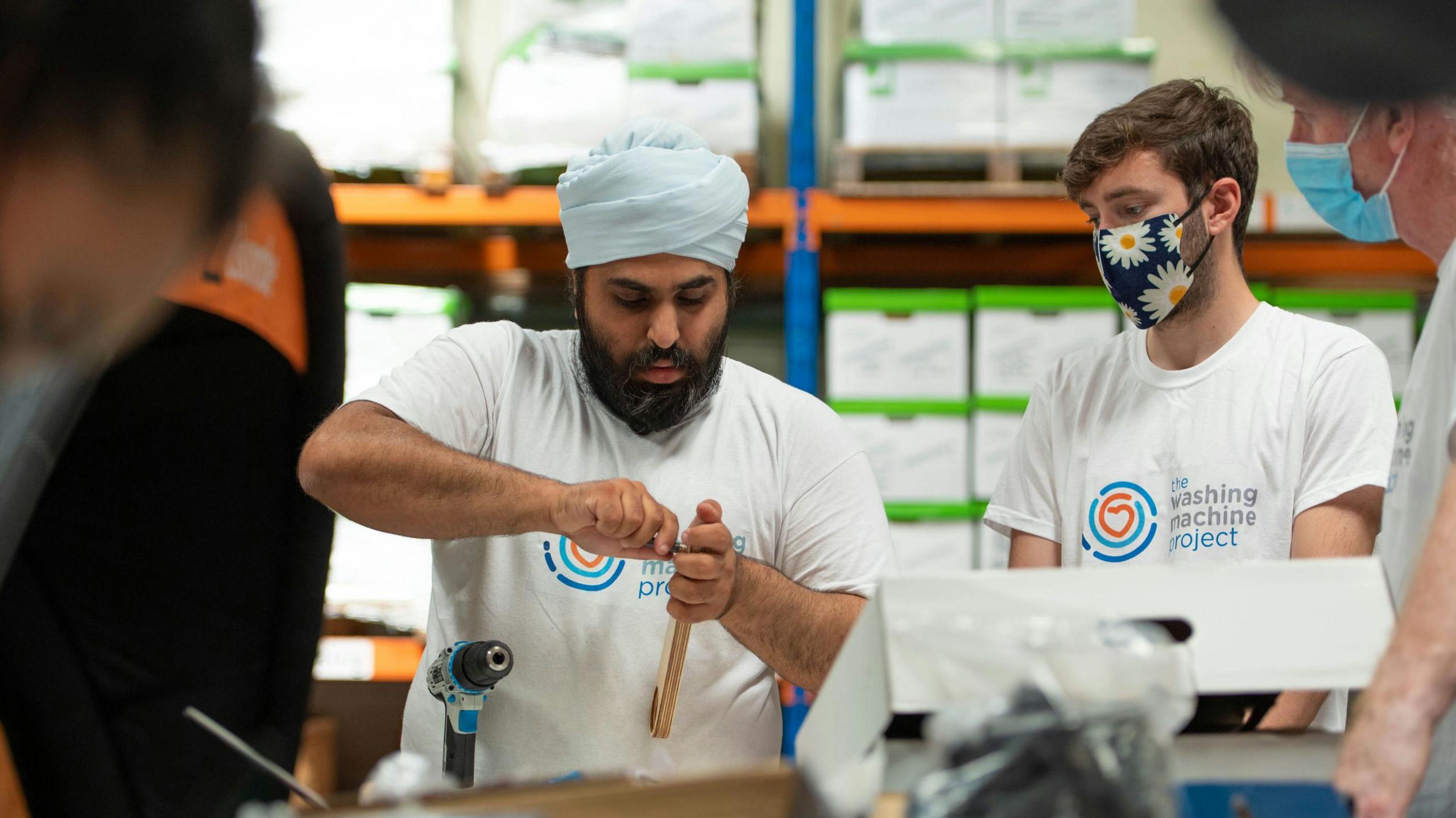
Engineer Mr Sawhney is a University of Bath graduate
The five-year project will be tailored for each of the six different countries to ensure the support offered is in alignment with each place's cultural, economic and environmental conditions.
Since its foundation in 2019 the organisation has conducted research in 13 countries, interviewing more than 3,000 families across India, Uganda, Jamaica, Nepal and the Philippines to better understand how people there wash clothes.
The project has already distributed machines in a number of other countries including the United States, Iraq and Lebanon, and plans to work in future with global organisations such as United Nations High Commissioner for Refugees, Oxfam and Care International.
Related topics
- Published24 April 2021
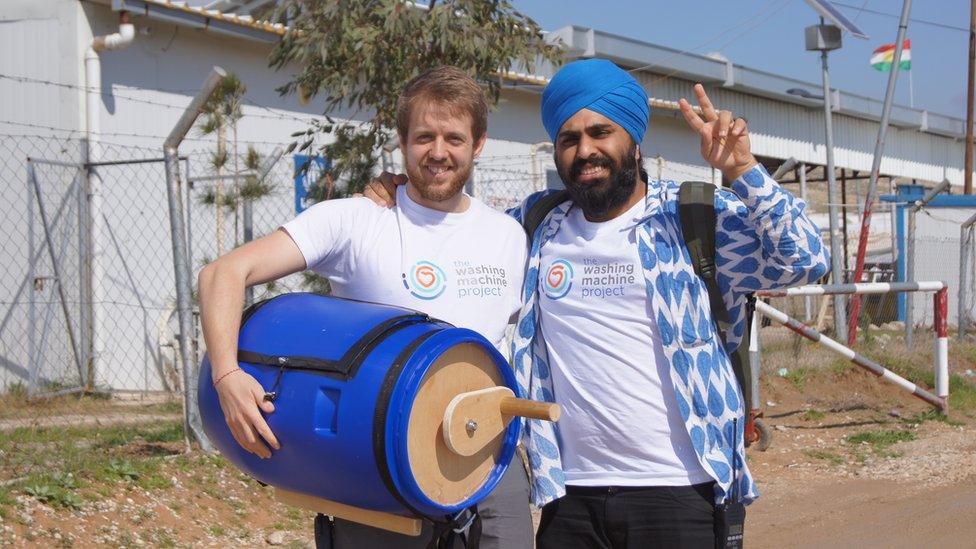
- Published26 January 2023
